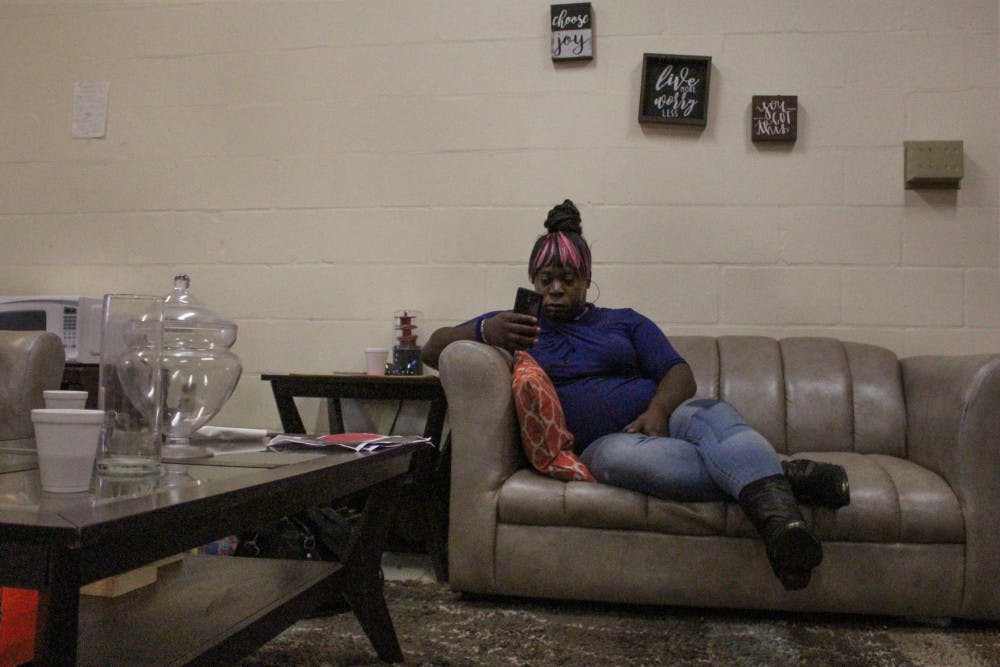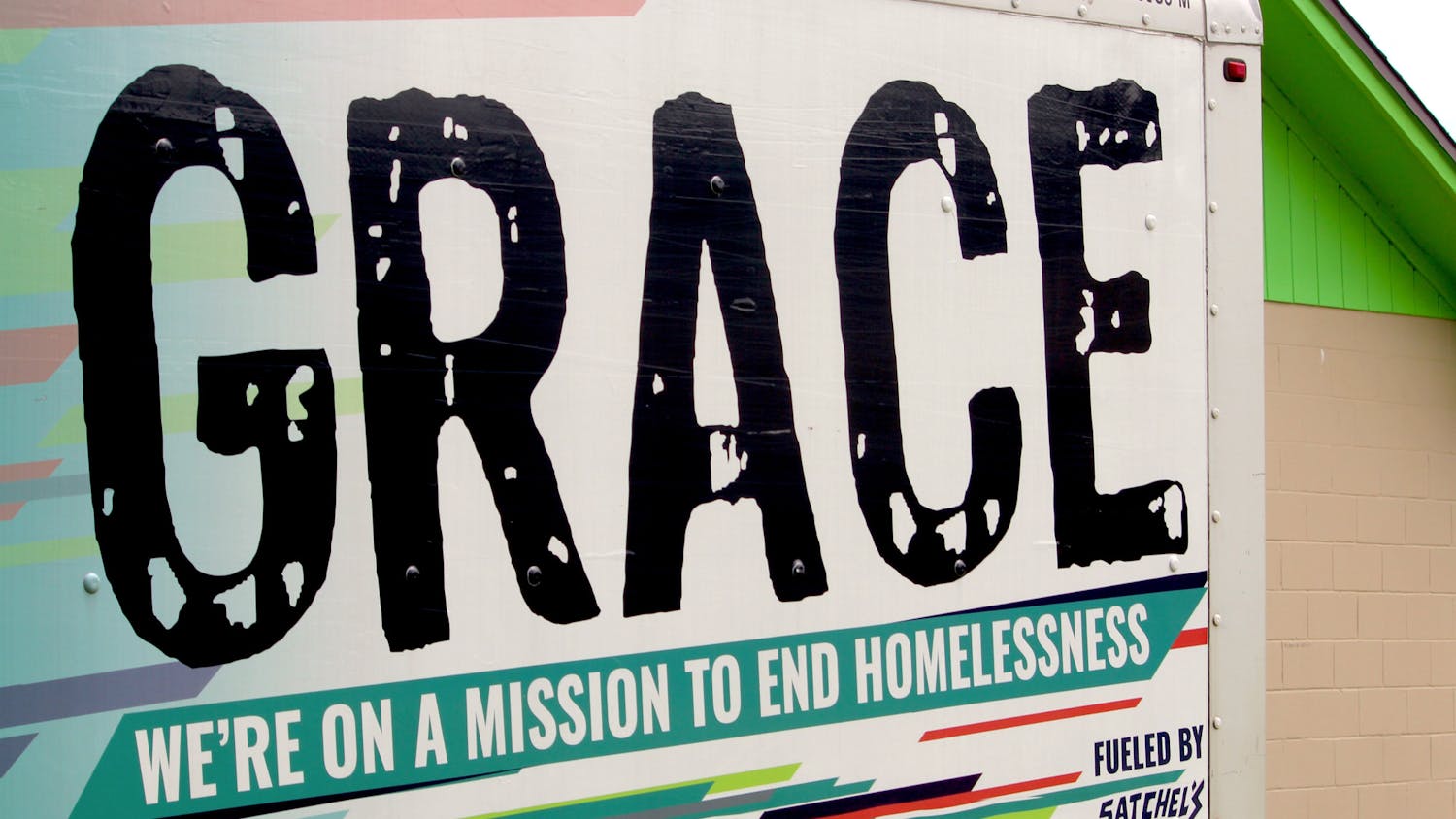Three nearly empty large glass jars sit atop tables in a hidden room of Grace Marketplace, a Gainesville homeless shelter.
Inside these cylindrical containers lie tampons and sanitary napkins — but so few of them, they barely cover the bottom.
Shortages of menstrual items, diapers and basic hygienic products are common in shelters across Gainesville, said Jayne Moraski, the executive director of Family Promise of Gainesville, a shelter and housing program for families with children.
“It’s still something taboo for people to talk about,” Moraski said. “It shouldn’t be.”
There were 641 documented homeless people on the streets and in shelters in Alachua County in 2018, according to the North Central Florida Coalition for the Homeless and Hungry.
In 2014, The Alachua County Coalition for the Homeless and Hungry opened Grace, which annually receives about $1.4 million split between the city of Gainesville and Alachua County.
Monica Love, 25, a homeless woman who has been in and out of Grace Marketplace over the past four years, recalls a time when she did not have access to menstrual products.
It was last month when she interviewed for a job at Sonny’s BBQ.
Love said she felt uncomfortable, and it affected her confidence at the time, a concern she believes other people typically don’t have.
“When you have all those things in order, you know just about nothing can go wrong,” she said. “People just don’t really think about it as well.”
At Grace Marketplace, Love said some people specifically ask for products while others wait until it is available for access.
Lotion, shampoo, nail clippers and soap are some items that the shelter tends to lack at times, she said.
Jon DeCarmine, the director of Grace Marketplace, declined to comment.
Access to hygienic products is one of the biggest concerns among those at Family Promise, which typically houses about four families at a time, Moraski said. About 80 percent are usually single-mother families.
Moraski recalls how one mother described the difficulty of having to wash her 6-month-old in a bus station sink. She was trying to balance living in her car and working full time.
She remembers how a man broke down in tears because of how long it had been since he had access to deodorant, she said.
Supplying products and rehabilitating those in need is how Moraski and about 600 volunteers help the homeless at Family Promise.
“We hope it’s a small way to bring back basic human dignity,” she said.
Although they supply products, they do not get enough to help the large amount of homeless in the city, she said.
Menstrual products are missed the most at the shelter because it relies exclusively on donations, she said. Charities, banks and local drives help out, but Family Promise typically only receives menstrual hygiene products about once every two months.
These products last either for a few months or about a week, she said. It depends on the amount given or demand of the products.
“It’s a part of life that folks who are housed and have stable incomes take for granted,” Moraski said. “There’s just so much need.”
In the future, creating the conversation about feminine hygiene products wouldn’t make the issue go unnoticed, Moraski said.
“This is one piece in a very large puzzle we’re trying to solve,” she said.






